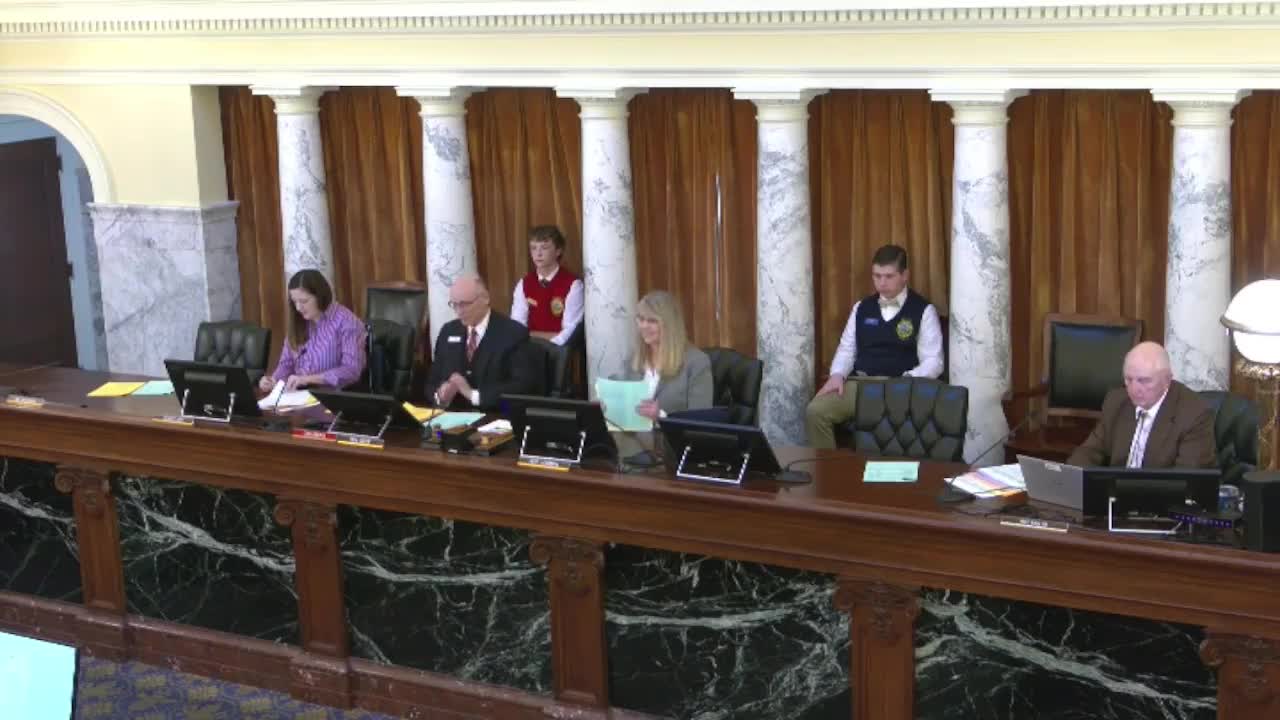JFAC approves behavioral-health budget changes, adds federal grant spending and fund-shift language
Get AI-powered insights, summaries, and transcripts
Subscribe
Summary
The Joint Finance-Appropriations Committee approved multiple supplemental and FY2026 adjustments for behavioral-health programs, including federal grant appropriations for the Idaho Behavioral Health Plan, supplemental payments for civil-commitment costs, and language allowing certain intra-division transfers under Idaho Code 67-35-11.
Senators and representatives on the Joint Finance-Appropriations Committee approved a package of supplemental and FY2026 budget adjustments on Friday that moves federal grant dollars into the Idaho Behavioral Health Plan and shifts certain psychiatric hospitalization funds between federal, dedicated and general funds. Committee members also adopted language to allow specified transfers across expenditure classes in the Department of Health and Welfare under Idaho Code 67-35-11.
The committee voted to appropriate $6,743,800 one time from Cooperative Welfare federal funds to support contract implementation of the Idaho Behavioral Health Plan. The motion passed on the floor with a recorded committee outcome of 15 ayes, 5 nays. The committee also approved a FY2026 federal increase of $261,400 for the division of mental health services (18 ayes, 0 nays).
Separately, the committee approved several supplemental actions for psychiatric hospitalization. It added $2,663,500 one time from general fund dollars for community hospitalization civil-commitment expenditures (vote: 19 ayes, 1 nay). Forecast adjustments and fund shifts at the state hospitals were approved in multiple motions that reallocated money from federal to dedicated funds and, in one case, added modest general-fund support; those measures passed with majorities reported by the chair (examples below). The committee also approved a request allowing mental-health programs to transfer appropriations between expense classes in accordance with Idaho Code 67-35-11; that transfer-exemption language was accepted by unanimous consent and will accompany the bills.
Committee members discussed the reasons for the requests on the record. Alex Williamson, budget and policy analyst with the Legislative Services Office, told members that some federal grant appropriations previously granted to the state had expired because of implementation delays, and the supplemental motions were requests to allow the department to spend those previously awarded federal funds. Williamson also explained that some fund-shift requests reflected accounting changes tied to new managed-care arrangements, which reclassify some formerly federal receipts as dedicated receipts for accounting purposes.
Lawmakers pressed the department and analysts on how the new appropriations would be used. One member urged the committee to ensure rate increases intended to boost direct-care worker pay actually flow to workers rather than administrative overhead; another asked for future reports tracking the department’s expenditures and outcomes tied to the Idaho Behavioral Health Plan. The committee required reporting and included condition-and-limitation language with several of the behavioral-health appropriations.
What the committee approved (selected items): - Idaho Behavioral Health Plan, FY2025 one-time federal appropriation: $6,743,800 (outcome: passed, 15 ayes, 5 nays). - Mental Health Services Division, FY2026 federal increase: $261,400 (outcome: passed, 18 ayes, 0 nays). - Psychiatric Hospitalization, community hospitalization supplement (civil commitment expenditures): $2,663,500 one time general fund (outcome: passed, 19 ayes, 1 nay). - State Hospital West and South forecast/fund-shift adjustments: net shifts from federal to dedicated funds and limited general-fund changes (outcomes: recorded and passed; see actions below). - Substance Abuse Treatment and Prevention FY2026 adjustments (fund-source shifts, net zero): passed (outcome recorded 15 ayes, 5 nays).
Why it matters: The package adds federal and general-fund authority intended to support the state’s implementation of the Idaho Behavioral Health Plan, to cover higher-than-expected community hospitalization costs tied to civil commitments, and to align accounting treatment after changes to federal receipts. The transfer-exemption language (Idaho Code 67-35-11) gives program managers temporary flexibility to move appropriations across classes, which committee members said is intended to prevent administrative delays while program operations evolve.
The committee’s actions are technical appropriations and language modifications; none create a new statutory program. Several members asked staff to track whether earlier rate increases intended to raise direct-care worker take-home pay in fact reached employees; analysts agreed to collect follow-up information for the committee.
The committee forwarded the approved behavioral-health measures with a due-pass recommendation to the next step in the legislative process. Additional reporting and condition language included in the motions requires follow-up from the Department of Health and Welfare.
